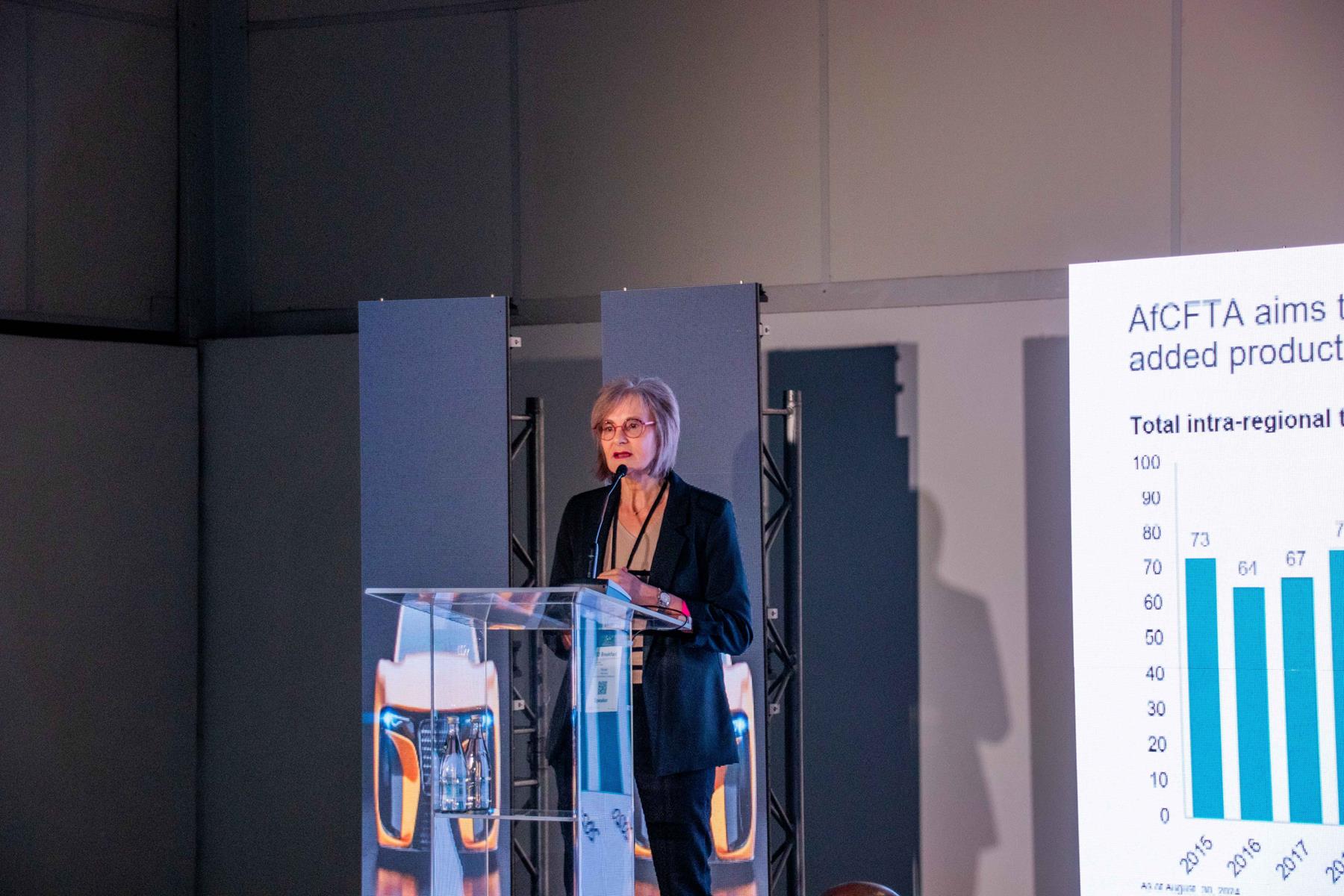While the 2024 Festival of Motoring ushered in a plethora of new models, including the latest Ford Mustang, VW T-Cross as well as the Jetour J6 and BYD Seal electric vehicles, the one thing consumers at the event wanted to hear was confidence there would be an interest rate cut.
The unveiling of these models is expected to boost the country’s new vehicle market, which is on the cusp of a gradual recovery according to WesBank CEO Ghana Msibi.
 Ghana Msibisi
Ghana Msibisi
Reflecting on the state of the local automotive industry, Msibi expressed confidence in the sector's resilience, which has weathered a prolonged economic downturn.
"When we examine the industry’s performance, we can see emerging patterns that suggest the new vehicle market has reached the lowest point of its current cycle, which began even before the COVID-19 pandemic. The worst is now behind us," Msibi remarked. "What lies ahead is the beginning of a recovery—initially, modest gains in specific areas, but gains nonetheless."
However, he emphasised: "Unless there’s a significant change in the economy, competitive pricing will continue to be the key factor in winning over consumers."

In the current economy pre-owned cars offer great deals for buyers - click here
Msibi highlighted the catalysts for this anticipated growth, referencing the Naamsa new car sales data from 2019, when total annual sales reached 529 293. The annual sales of 531 933 new vehicles in 2023 marked a resilient recovery, bolstered significantly by the arrival of new, value-focused brands — a trend he expects to continue as more entrants from the Far East join the market.
"The industry stands to benefit from the relative stability brought about by the formation of the Government of National Unity, as well as improvements in the country's energy supply. Furthermore, plans to unlock the full potential of our ports could help mitigate the effects of rising vehicle prices, a weakening currency, and sluggish economic growth," Msibi added.
On the broader economic front, Msibi discussed the potential influence of the US Federal Reserve on South Africa’s Monetary Policy Committee (MPC) decisions regarding repo rates.
"Indicators suggest the US Federal Reserve may reduce the lending rate to 3,25% over the next two years, largely due to declining inflation in the US. We anticipate a modest 25 basis point cut, which could influence South Africa’s MPC to adopt a similar approach, especially in light of improved Consumer Price Index data."
Msibi pointed out that, for the first time in years, two MPC members voted for a repo rate reduction in July — a significant sign that a reduction in rates for indebted consumers could be on the horizon in September.
"If stability persists, South Africa could see a series of repo rate cuts totalling 125 basis points by the end of 2025," Msibi predicted.
"While the impact on monthly car payments might seem minimal, the overall savings on all forms of debt, including home loans and credit card debt, will be substantial. This will boost purchasing power, initially benefiting the used car market and demo sales."
Msibi tempered expectations, noting that a significant increase in the size of the local automotive market is unlikely in the short term. However, he foresees a continued shift in market share towards new, value-oriented brands.
"From a WesBank perspective, we've already seen Asian brands grow their share to about 26% of new vehicle purchases, and we expect this trend to continue in the coming months." Msibi concluded.
Car insurance at the best price - click here

Check out the affordability factor with our calculator - click here
At the CEO breakfast presented by Automechanika, Ronel Oberholzer, Head of Sub-Saharan Africa Economics at S&P Global Market Intelligence, alongside Economist Lerato Ntuli, delivered an insightful analysis of global trade patterns, with a particular focus on Africa.
The discussion centred on the African Continental Free Trade Area (AfCFTA), a groundbreaking initiative established by the 55-member African Union, with 54 countries having signed the agreement. The AfCFTA is poised to significantly enhance trade opportunities across the continent, despite sub-Saharan Africa currently accounting for just 2% of global trade. Notably, the AfCFTA is the largest free trade area in the world by the number of participating countries.
In 2023, South Africa emerged as the leading trade region within Africa, accounting for 55% of all trade on the continent, up from 52% in 2015. It was followed by Egypt and Mozambique, each contributing 12%, Côte d'Ivoire at 11%, and Nigeria at 10%.
However, Oberholzer pointed out that trade expansion in many parts of Africa faces significant challenges due to inadequate infrastructure and security concerns. Addressing these issues could unlock rapid and substantial growth in trade within the AfCFTA.
Of particular interest to the automotive industry is the fact overland trade constituted 61% of all AfCFTA trade in 2023, with seaborne and airborne trade accounting for 36% and 3%, respectively. Oberholzer highlighted the vast potential for commercial vehicle manufacturers and the automotive aftermarket to meet the demands of various regions within the AfCFTA, noting that this presents a significant opportunity for the motor industry to expand its footprint on the continent.
Colin Windell for Colin-on-Cars in association with
proudly CHANGECARS











